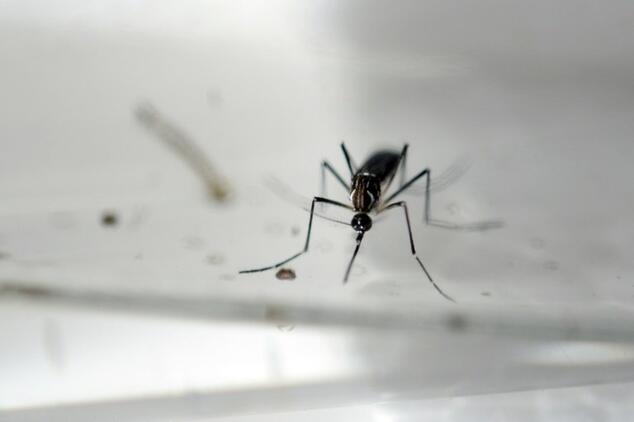The first known case of a woman spreading the Zika virus to a man during unprotected sex was reported on Friday in New York City, health authorities said.
Until now, experts were aware only of cases in which men spread the virus to their partners during sex, as well as transmission by mosquito bites.
“This is an important event but not entirely unexpected,” said Jay Varma, deputy commissioner at the New York City Health Department.
The case involved a “nonpregnant woman in her twenties who reported she had engaged in a single event of condomless vaginal intercourse with a male partner the day she returned to New York City from travel to an area with ongoing Zika virus transmission,” the Centers for Disease Control and Prevention (CDC) said.
Its report did not specify where the woman may have been infected.
The next day, she developed fever, back pain, swelling, numbness and tingling in her hands and feet.
She tested positive for Zika, a typically mosquito-borne virus that is spreading rapidly through the Caribbean and Latin America.
Seven days after sexual intercourse, her male partner, also in his twenties, developed fever, a maculopapular rash, joint pain and conjunctivitis.
The partner said he had not traveled outside the United States during the prior year.
He also said he did not have any other recent sexual partners and had not been bitten by mosquitoes in the week before his illness.
“The New York City report of female-to-male sexual transmission of Zika virus infection is the first documented case of sexual transmission of Zika from a woman to her sex partner and adds to the growing body of knowledge about the sexual transmission of Zika,” the CDC said.
Zika can cause birth defects, including the brain and skull deformity known as microcephaly.
Health authorities are urging pregnant women to avoid travel to Zika-affected areas, and to abstain from sex or use barrier methods of contraception during sex if their partners — whether male or female — have traveled to or live in areas where the Zika virus is present.
“This is not the year to travel if you’re a pregnant woman or trying to conceive,” said Varma.
The CDC said it is updating its guidelines because the current advice to prevent sexual transmission of Zika “is based on the assumption that transmission occurs from a male partner to a receptive partner.”
Source: AFP











